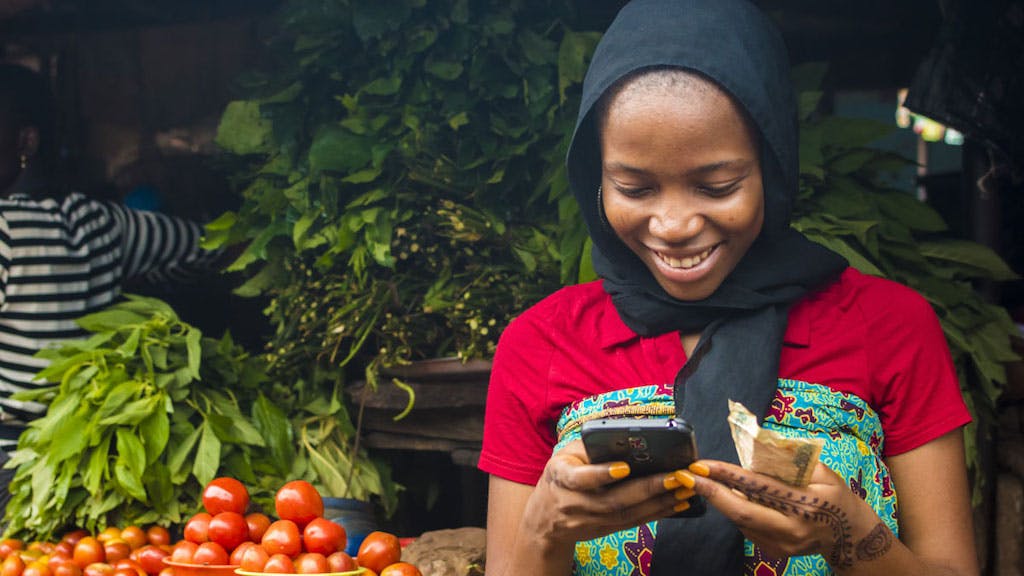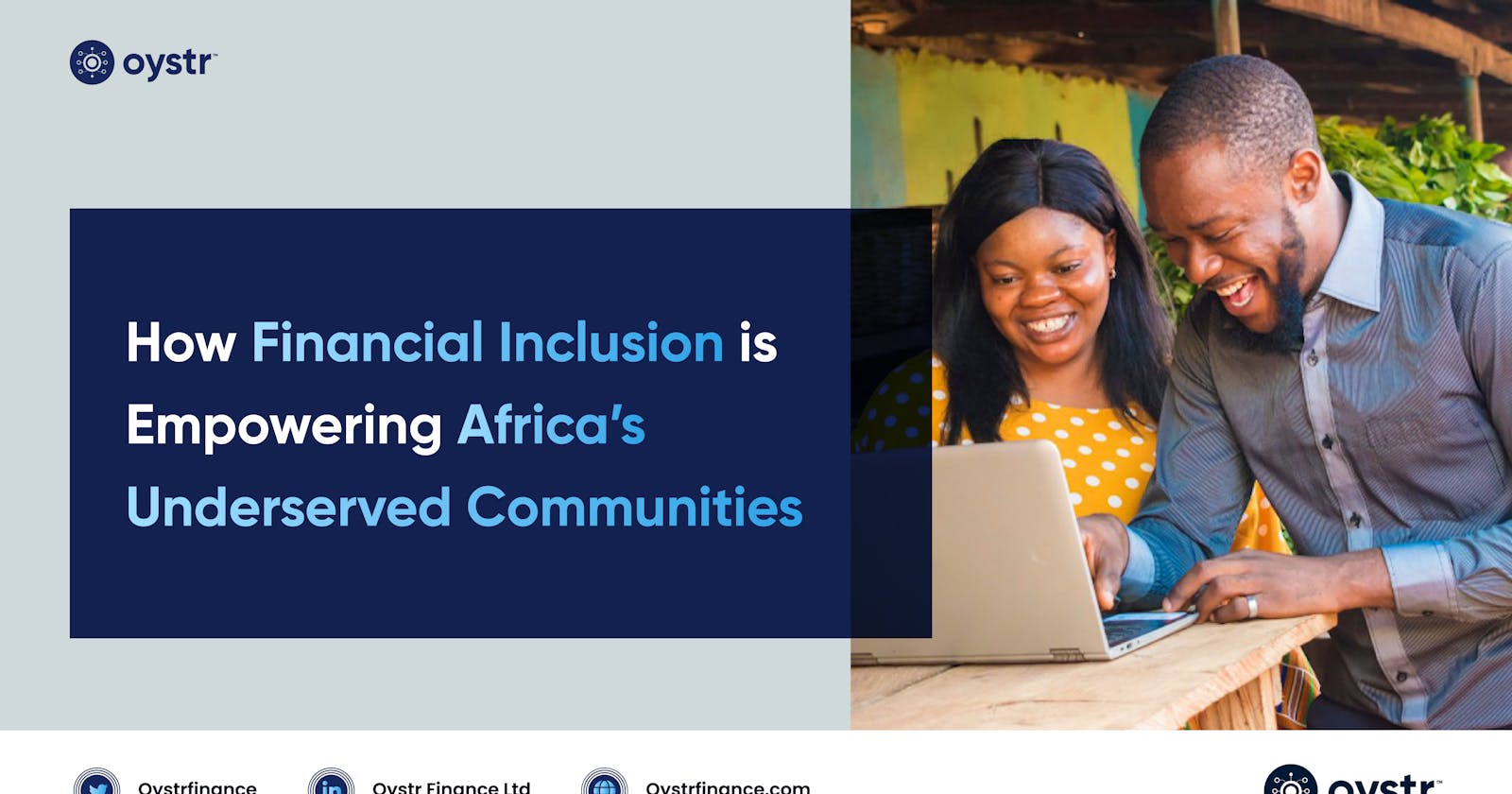Have you ever wondered how financial inclusion is changing the game for Africa's underserved communities? It's no secret that access to financial services can make a huge difference in people's lives, but what about those left behind? With innovative new solutions and a growing focus on inclusion, Africa is seeing a wave of empowerment changing the future for millions of people. Join us as we take a closer look at this exciting development, Oystr Finance's role in providing financial inclusion for all, and explore what it means for the continent and beyond.
Understanding financial inclusion
Financial inclusion refers to the availability and usage of financial services by individuals and businesses, particularly those in underserved communities. It aims to provide access to affordable and appropriate financial products and services, such as savings accounts, loans, and insurance, to people traditionally excluded from the formal banking system.
The impact of financial inclusion on underserved communities
Improved Savings and Investment
Financial inclusivity encourages individuals and small businesses to use formal banking services. This, in turn, promotes savings and facilitates investment in income-generating activities. Increased savings can lead to more capital available for investment in productive sectors of the economy.
Access to Credit
More people can start or expand businesses, invest in education, and improve their living conditions when they have access to credit. This drives entrepreneurship and economic activity, ultimately contributing to economic growth.

Reduction in Income Inequality
Financial inclusivity can help reduce income inequality by providing low-income and marginalized communities with the tools to build assets and generate income. Wealth distribution becomes more equitable as more people participate in the formal financial system and get access to credit.
Increased Consumption
Access to financial services can lead to increased consumer spending, which boosts demand for goods and services. This can stimulate economic growth, particularly in retail and consumer goods.
Financial Stability
A more inclusive financial system can enhance financial stability by reducing the reliance on informal and sometimes risky financial channels. This, in turn, can help prevent financial crises and promote overall economic stability.
Financial Inclusion Statistics in Africa
The statistics regarding financial inclusion in Africa are both promising and challenging. According to the World Bank, in Sub-Saharan Africa, around 66% of adults are unbanked, meaning they need access to formal financial services. However, there have been significant improvements over the past decade, with the number of adults with access to a bank account increasing from 24% in 2011 to 43% in 2017.

Mobile money has played a crucial role in driving financial inclusion in Africa. According to the Global Findex Database, Sub-Saharan Africa has the world's highest mobile money usage, with 21% of adults having a mobile money account. This highlights the transformative power of mobile technology in bridging the financial inclusion gap.
Initiatives promoting financial inclusion in Africa
The Alliance for Financial Inclusion (AFI)
A global network of policymakers and regulators is dedicated to advancing financial inclusion through policy and regulatory reforms. AFI's members work together to develop innovative and inclusive economic systems that benefit all segments of society.
Alternative Data
Utilizing alternative data allows financial institutions to complete a previously absent element in their borrower profiles. As more financial institutions embrace alternative data, it becomes increasingly feasible to broaden their clientele and cater to those who have been traditionally overlooked.

Using alternative data presents fresh prospects for expansion and innovation within emerging markets. Oystr provides the most extensive alternative data infrastructure for financial institutions. To begin, visit our website.
Challenges to achieving financial inclusion in Africa
Limited Access to Financial Services
A significant portion of the African population, especially in rural areas, still lacks access to basic financial services like banking, insurance, and credit. The lack of physical banking infrastructure, such as branches and ATMs, and the high cost of reaching remote areas hinder access.
Low Income and Informal Employment
Many Africans are engaged in informal employment and have irregular or low incomes. This makes it difficult for them to meet the requirements for traditional banking services, such as minimum balance requirements or collateral for loans.
Financial Literacy and Trust
Many people in Africa have limited financial literacy, which can lead to mistrust or misunderstanding of financial products and services. This lack of understanding can make them reluctant to use formal financial services, preferring to rely on informal financial mechanisms like savings groups or informal lenders.
Regulatory Barriers and Outdated Policies
Additionally, regulatory barriers and outdated policies can hinder the growth of financial inclusion. Governments must create an enabling environment promoting innovation, competition, and consumer protection. By implementing supportive policies and regulations, governments can encourage expanding financial services and attract investment in the sector.
Success stories of financial inclusion in Africa
Despite the challenges, there are inspiring success stories of financial inclusion in Africa. For example, Kenya's M-Pesa has revolutionized the economic landscape in the country and served as a model for mobile money platforms worldwide. M-Pesa allows users to send and receive money, pay bills, and access loans through their mobile phones. It has empowered millions of Kenyans, particularly those in rural areas, by providing a safe and convenient way to manage their money.
Another success story is the partnership between MTN, a leading telecommunications company, and a bank in Uganda. This collaboration launched MTN Mobile Money, allowing users to send and receive money, pay bills, and access other financial services through their mobile phones. This initiative has significantly increased financial inclusion in Uganda, providing access to financial services to previously underserved populations.
Final Note
Financial inclusion is transforming the lives of underserved African communities, providing them access to essential banking services, credit, and insurance. Technology, such as mobile banking and digital payment platforms, has been instrumental in driving financial inclusion and empowering individuals and small businesses.
While there are still challenges to overcome, the progress made in promoting financial inclusion in Africa is promising. Financial inclusion can become a reality for all Africans with continued efforts from governments, organizations, and the private sector. By ensuring everyone has access to financial services and the knowledge to use them effectively, we can empower individuals, boost entrepreneurship, and drive economic growth in Africa's underserved communities.
Financial inclusion is not just a goal but a catalyst for positive change and a pathway to a more prosperous future for Africa. As we embrace technology and innovation, we must also remember the importance of human connection and collaboration in achieving financial inclusion for all. Only by working together can we create a more inclusive and equitable economic system that leaves no one behind.
Join us here as we drive financial inclusion to every nook and cranny of Africa.

